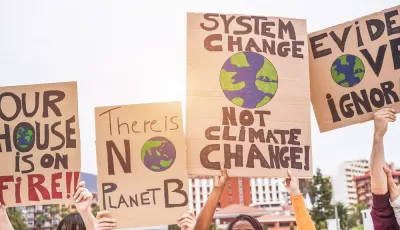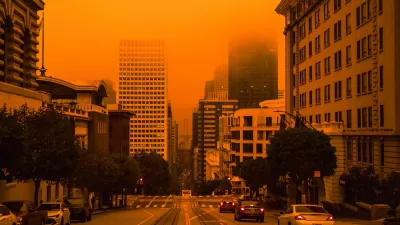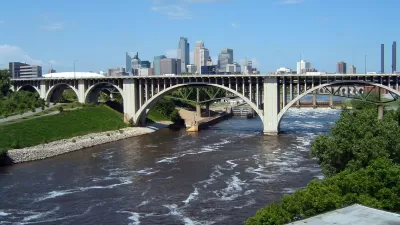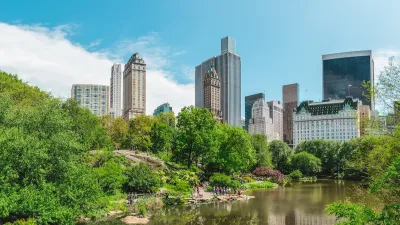Almost all U.S. mayors have some level of concern about climate change in their communities, but local leaders face some challenges in taking action.

A new report from the Boston University Initiative on Cities indicates that most U.S. mayors are concerned about the impacts of climate change on their communities. As Michael Brady writes in Smart Cities Dive, 97 percent of mayors surveyed said climate change was a concern, while over half worry about drought, extreme heat, flooding, and air pollution. Notably, “There was no partisan gap among mayors.”
According to the report, “Mayors said their regulatory powers, especially building codes and zoning, are their most effective tools to address climate change.” Cities are also focusing on replacing municipal fleets with electric vehicles in an effort to reduce emissions in the transportation sector. Per the survey, 74 percent “of mayors support replacing their city’s municipal vehicles before their natural lifecycle ends, which suggests a major opportunity to capitalize on new federal funds for things like electric school buses, fire trucks, and public works vehicles.”
However, “Local climate action can be costly and complicated, and it has to compete with all of the other challenges mayors are facing.” Brady explains, “Major concerns for mayors include the current costs and environmental effects of energy supplies.” Some are also concerned about the political fallout of unpopular decisions, seeking solutions with the fewest hard tradeoffs for their constituents.
FULL STORY: Nearly all US mayors worry about climate change’s local effects: report

Trump Administration Could Effectively End Housing Voucher Program
Federal officials are eyeing major cuts to the Section 8 program that helps millions of low-income households pay rent.

Planetizen Federal Action Tracker
A weekly monitor of how Trump’s orders and actions are impacting planners and planning in America.

Ken Jennings Launches Transit Web Series
The Jeopardy champ wants you to ride public transit.

Washington Legislature Passes Rent Increase Cap
A bill that caps rent increases at 7 percent plus inflation is headed to the governor’s desk.

From Planning to Action: How LA County Is Rethinking Climate Resilience
Chief Sustainability Officer Rita Kampalath outlines the County’s shift from planning to implementation in its climate resilience efforts, emphasizing cross-departmental coordination, updated recovery strategies, and the need for flexible funding.

New Mexico Aging Department Commits to Helping Seniors Age ‘In Place’ and ‘Autonomously’ in New Draft Plan
As New Mexico’s population of seniors continues to grow, the state’s aging department is proposing expanded initiatives to help seniors maintain their autonomy while also supporting family caregivers.
Urban Design for Planners 1: Software Tools
This six-course series explores essential urban design concepts using open source software and equips planners with the tools they need to participate fully in the urban design process.
Planning for Universal Design
Learn the tools for implementing Universal Design in planning regulations.
Heyer Gruel & Associates PA
Ada County Highway District
Institute for Housing and Urban Development Studies (IHS)
City of Grandview
Harvard GSD Executive Education
Toledo-Lucas County Plan Commissions
Salt Lake City
NYU Wagner Graduate School of Public Service





























